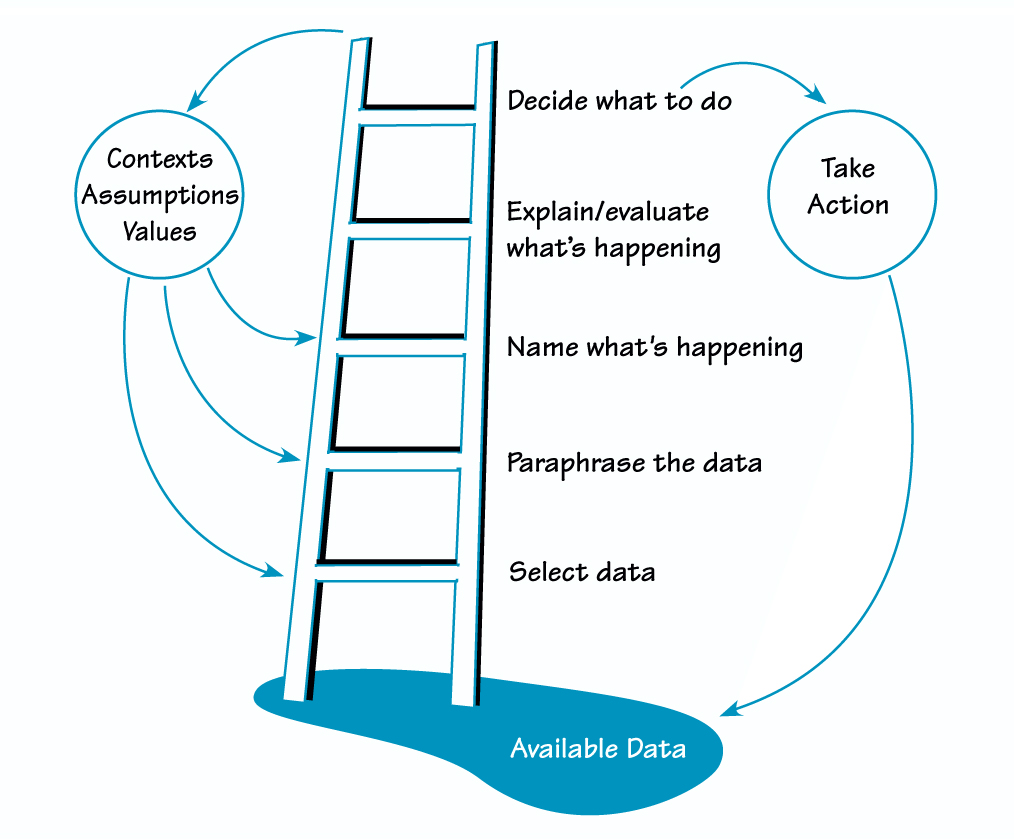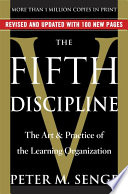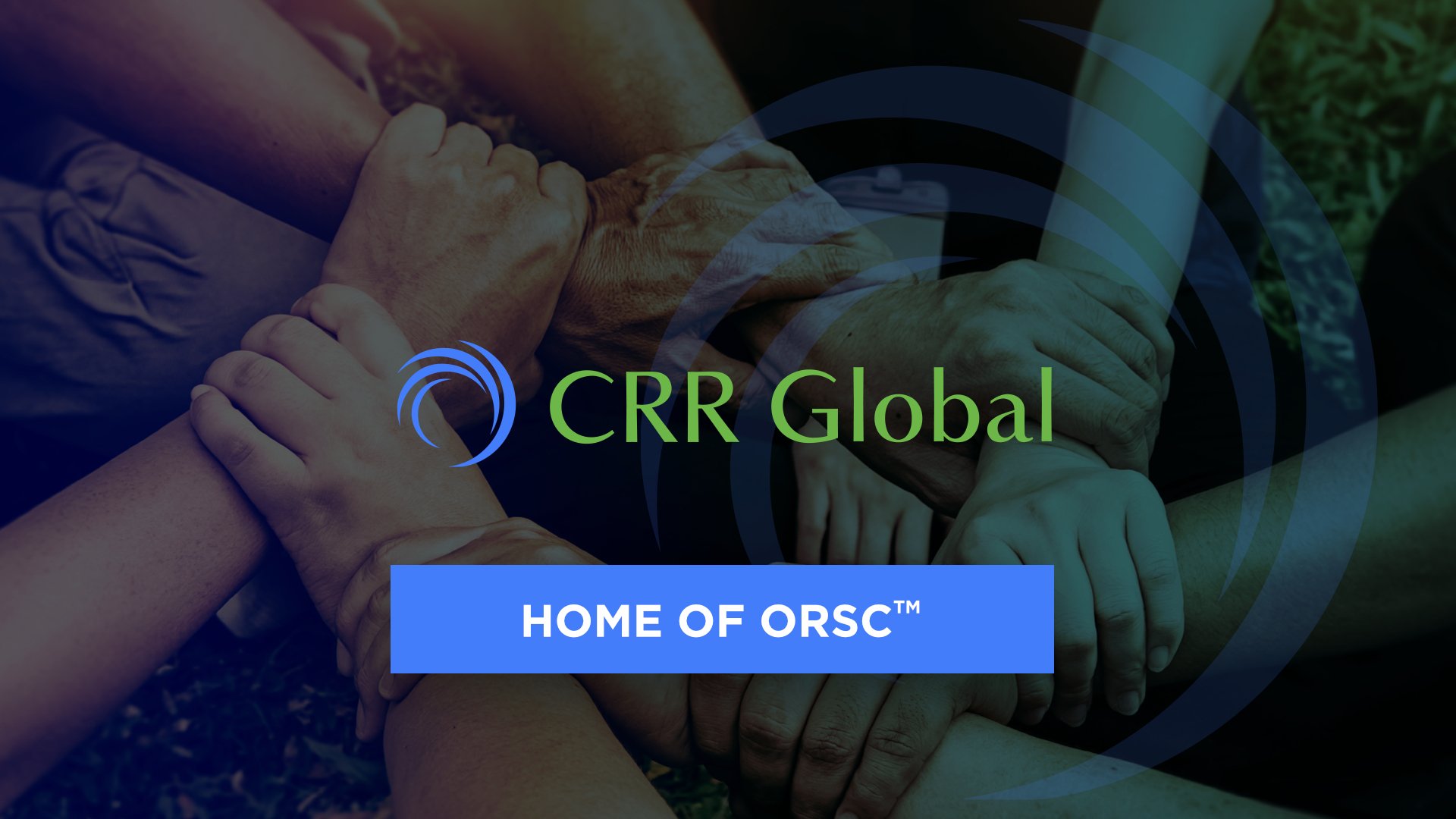You’ve likely seen it happen: someone shows up late, avoids eye contact, and stays quiet. It’s easy to assume a story—they’re disengaged, upset, maybe even disrespectful. The truth? You don’t actually know. But your body’s already reacting, your mind’s made up, and the interaction has shifted course.
This is what Chris Argyris describes as the Ladder of Inference: a model that shows how quickly we go from observing to assuming to acting. I’ve written about it before as a powerful tool for creating inclusive environments (read more here). This post offers a fresh take by pairing it with one of my favorite systems coaching tools: Lands Work from Organizational Relationship Systems Coaching (ORSC).
Together, these tools help individuals and teams slow down reactive thinking, explore different perspectives, and build connection across differences.
The Ladder We All Climb
Here’s how the Ladder of Inference works. In mere seconds, our brain moves us through seven steps:
- Observable Data – What we see or hear
- Selected Data – What we notice or pay attention to
- Added Meaning – The interpretation we bring
- Assumptions – The story we create
- Conclusions – What we decide is true
- Beliefs – What gets reinforced over time
- Actions – What we do (or don’t do) based on that belief
These shortcuts can be helpful, but they also make it easy to act on assumptions—especially in fast-paced or emotional moments.
Seeing More Than One Land: Using Lands Work
Lands Work helps us recognize how people experience the same moment differently, shaped by their unique values, culture, and lived experience. This tool asks us to imagine that each person is operating from the perspective of their own “Land.”
When someone’s behavior confuses or irritates us, it’s often because we’re seeing it through our own filters. The mistake we make is assuming our land is their land. Take silence in a meeting. In Your Land, it might signal disinterest. In Their Land, it could mean reflection, hesitation, or uncertainty.
By mapping both lands—and then exploring what might exist in Our Land (the shared space)— we can move from assumption to awareness. It’s not just about empathizing; it’s about shifting toward greater clarity, respect, and trust.
Lands Work invites us to pause, get curious, and visit someone else’s land and ask:
- What’s the weather like in their land today?
- What values or experiences shape their reaction?
- What might they be seeing that I don’t?
Try This: A Lands-Based Reflection Exercise
To help slow down the ascent up the ladder, try the following:
- After setting team agreements for the meeting, ask team members to reflect on a recent tension or misunderstanding.
- Have participants write down what happened (Observable Data) and the story they told themselves (Assumptions).
- Ask to get curious and explore the other person’s land: What might be true in the other person’s land? What values or norms might explain their behavior?
- Get into pairs or small groups, and ask: If you visited their land, what would you be curious about?
- Finally, invite them to name what they want to carry into the shared space you create together (our land).
Try a full “My Land, Your Land, Our Land” activity with your team.
Traveling Across Differences
There’s a Spanish saying I love: Cada cabeza es un mundo—every head is a world. Stated another way, each person in our workplaces, our families, and communities carries with them a diverse land, filled with their own way of communicating, experiences, orientations, perspectives, and tolerances for risk, ambiguity, or feedback.
When we make these differences visible—and treat them as landscapes to explore rather than problems to fix—we build more compassionate, adaptable relationships.
So next time you feel yourself climbing the Ladder of Inference, pause. Ask: Am I reacting from my land? What might be happening in theirs? That small moment of curiosity can change everything.
Further Exploration

This article offers practical advice for using the Ladder of Inference in real-world situations.

Systems thinking chapter on Mental Models

ORSC tools like Lands Work and Deep Democracy





